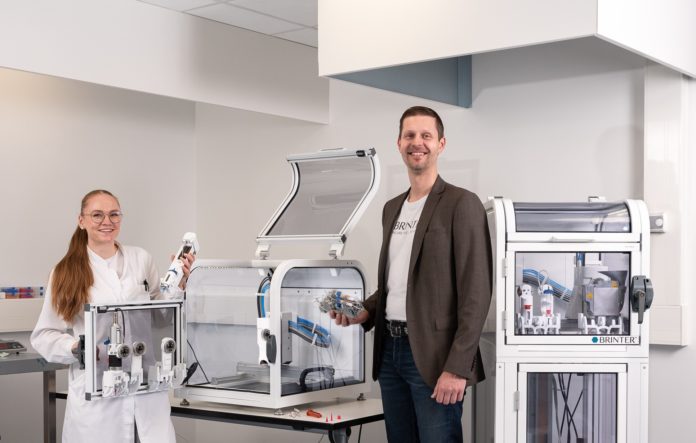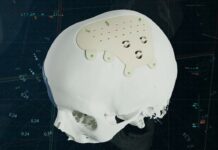Manufacturing cases that range from personalized drugs to human spare parts will be at the heart of the next developments of Brinter
The slow revolution in the medical industry reveals the willingness of companies that ambition to enhance traditional methods of discovery in the research of new drugs, as well as the treatment of certain diseases by providing medical research facilities and universities with a cost-effective approach to shorten and enhance the productivity of the scientific discovery process and bio-manufacturing.
The latest company that emerged from stealth mode to overcome these challenges is Brinter.
Founded in 2020 via partial demerger in Turku, Finland, Brinter is a modular multi-material bioprinting platform scalable from manual R&D to automated production. The company works with science and bioengineering organizations to integrate 3D bioprinting into their research, manufacturing, and treatment methods.
Already active in over 10 countries, the company has just secured a €1.2M seed funding round led by early-stage VC Innovestor. The capital will serve its expansion plans in Europe and the US as the company aims to put bioprinting within reach of every pharmaceutical company, hospital, university, and research center.
“We are excited to have the backing of Innovestor who can help us accelerate the development of our operational capabilities and scale in new geographies,” says Brinter CEO Tomi Kalpio. “Bioprinting has the capability to rapidly unlock the opportunities behind long-running but unrealized science and research, and plays a key role in pushing the frontier of medical science. This will result in an improved quality of life for patients through the expansion of more personalized treatment and the ongoing development of bioprinted “spare parts” that can save lives,” he explains.
Customers of the company include bio and pharmaceutical companies like Nanoform, as well as research organizations like VTT, BEST group at the University of Glasgow, Johannes Gutenberg University of Mainz, the University of Oulu, and the University of Helsinki.
While Brinter’s technology currently helps its customers to improve 3D brain printing, 3D printing of a new kidney for a transplant to name a few examples, the company now aims to address medical issues that range from personalized drugs to human spare parts.
Remember, you can post job opportunities in the AM Industry on 3D ADEPT Media free of charge or look for a job via our job board. Make sure to follow us on our social networks and subscribe to our weekly newsletter : Facebook, Twitter, LinkedIn & Instagram ! If you want to be featured in the next issue of our digital magazine or if you hear a story that needs to be heard, make sure to send it to contact@3dadept.com






